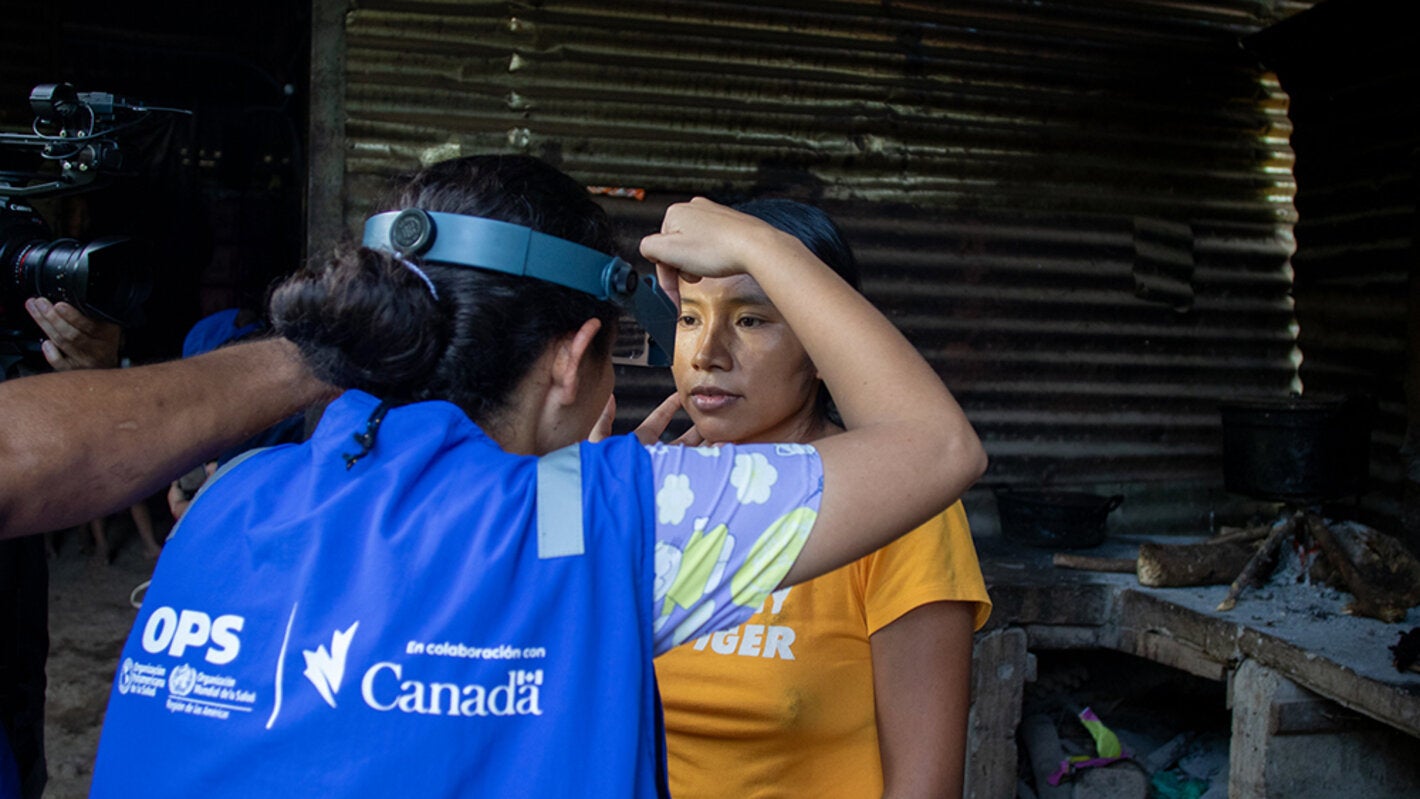
Washington, D.C., 27 May 2025 (PAHO) - Nine countries in the Region of the Americas recently reported on what they achieved during the second year of the Initiative for Trachoma Elimination in the Americas, a partnership between the Pan American Health Organization (PAHO) and the Government of Canada. The Second Annual Meeting of the Initiative, held virtually on 21-22 May, brought together nearly 70 participants, including delegates from the Ministries of Health of Bolivia, Brazil, Colombia, Ecuador, El Salvador, Guatemala, Mexico, Peru, and Venezuela. The meeting was also attended by representatives of the Government of Canada, PAHO technical advisors in strategic areas, and indigenous leaders.
During the meeting, experiences, lessons learned, and key results of the initiative's implementation were shared, including expanded access to comprehensive health services in remote communities and strengthened local capacities. The participating countries presented their progress in the implementation of activities that integrate gender and intercultural approaches, highlighting the opportunities for inter-programmatic and inter-sectoral cooperation that enable this initiative not only to address trachoma but also to act as a bridge for comprehensive primary care in hard-to-reach territories.
"The most important work is done in the field, at the primary care level. The trachoma elimination in the Americas has been possible—Mexico eliminated trachoma as a public health problem in 2017—thanks to a structured approach adapted to the cultural and social specificities of a disease closely linked to extreme poverty," said Sylvain Aldighieri, director of PAHO's Department of Communicable Diseases Prevention, Control and Elimination (CDE), during his opening remarks. Aldighieri also emphasized that this regional initiative would not exist without the support of the Government of Canada, which has made a significant five-year investment.
Adequate access to water, sanitation, and hygiene was highlighted during the meeting as fundamental to improving people's quality of life and an essential component of the initiative. At the meeting, a self-learning e-learning course on “Water, Sanitation and Hygiene (WASH) and Health: Working together” was launched. The course is available (in Spanish only) at the PAHO Virtual Campus for Public Health. It was developed through inter-programmatic work between CDE and the Department of Social and Environmental Determinants for Health Equity (DHE).
The event was closed by Juanita Ovalle, Mayan therapist and advocate for ancestral health knowledge. Her testimony underscored the importance of an intercultural approach and respect for indigenous practices in the fight against trachoma, strengthening the initiative's commitment to equity and cultural diversity in public health.



